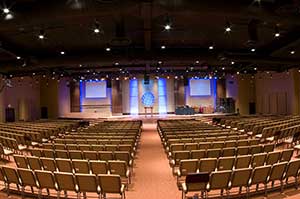 Our last post discussed how a church corporation or ministry corporation is formed. Today, let’s consider:
Our last post discussed how a church corporation or ministry corporation is formed. Today, let’s consider:
Who are incorporators, directors, and officers?
When establishing a church corporation or a ministry corporation, it is important to understand the meaning of these terms. First, what is an incorporator? An incorporator is simply the person who signs the articles of incorporation which are filed with the state to establish the corporation. (See last week’s blog post.) This signature may be an actual signature, if the filing is made with a paper form, or the signature may be in electronic form if the articles are filed via internet. An incorporator isn’t liable for the actions of the corporation. By signing the articles of incorporation, he or she is simply representing to the state that the articles of incorporation are the authentic formative document for the corporation. As a lawyer who incorporates many churches and ministries, I am frequently an incorporator even though I am not a director or officer of the churches and ministries I establish for my clients.
Directors and officers, by contrast, have actual management authority over the corporation. Let’s address officers first. Officers are the individuals who typically have authority with respect to the day-to-day affairs of the corporation. Usually, they are referred to as the President, Vice-President, Secretary, and Treasurer of the corporation, but other names are sometimes used, such as CEO, COO, CFO, etc. It’s not uncommon for one person to serve as both Secretary and Treasurer of the corporation. The same person should not serve as both President and Secretary, since the Secretary sometimes needs to authenticate the signature of the President on legal documents.
Directors (often referred to as “Trustees” or “Board members”) usually have general management authority over the corporation. They are usually not involved in day-to-day operations to the same degree as officers of the corporation. Instead they have the right to vote on “big picture” decisions such as: approving the church’s budget, changing the church’s name, electing officers, amending articles of incorporation or bylaws, borrowing money, designating compensation for the pastor, dissolving the corporation, etc.
One final point… While “directors” and “officers” are not the same thing, as explained above, a person may serve in both roles. In other words, an officer may be a member of the Board of Directors, but this is not automatically the case. In order to be both an officer and a director, the person would need to be appointed or elected to serve the corporation in both roles.

